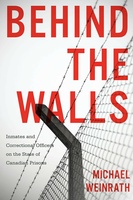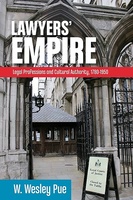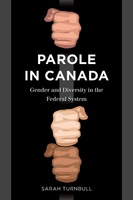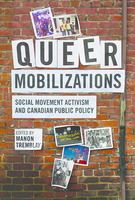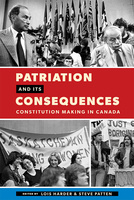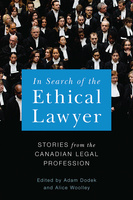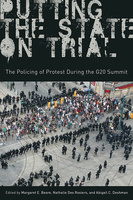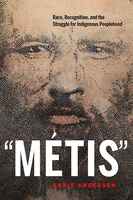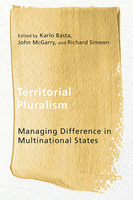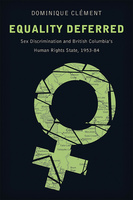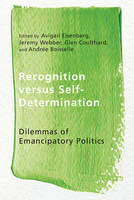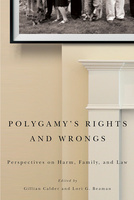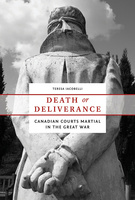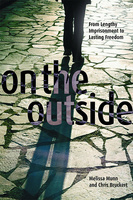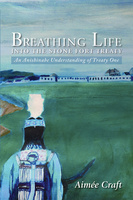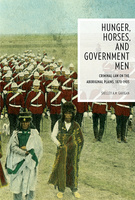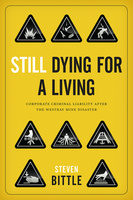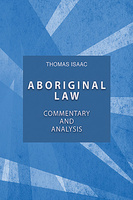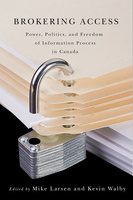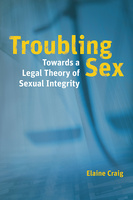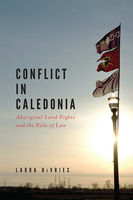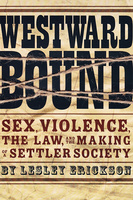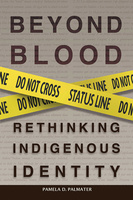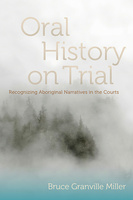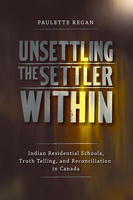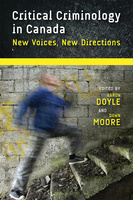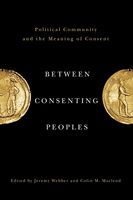Behind the Walls
Inmates and Correctional Officers on the State of Canadian Prisons
Based on candid conversations with inmates and correctional officers in federal and provincial prisons, Behind the Walls offers an up-to-date and balanced account of the corrections landscape in Canada.
Lawyers’ Empire
Legal Professions and Cultural Authority, 1780-1950
In approaching the history of the legal professions through the lens of cultural history, Wes Pue locates the legal profession within England and its empire, supplementing and disrupting established narratives of professionalism as proffered by lawyers and their critics.
Parole in Canada
Gender and Diversity in the Federal System
Parole in Canada explores how concerns about aboriginality, gender, and the multicultural ideal of “diversity” have altered parole policy and practice – and asks whether these changes go far enough.
Queer Mobilizations
Social Movement Activism and Canadian Public Policy
Canada is considered a leader when it comes to LGBTQ rights, but as Queer Mobilizations shows, this has less to do with progressive politicians than with the work of queer activists who have fought for policy changes from their local city halls to the chambers of Parliament.
Patriation and Its Consequences
Constitution Making in Canada
Patriation and Its Consequences examines the political events and struggles that resulted in the 1981 agreement to patriate the Canadian constitution and sheds light on the political consequences of this key moment in Canadian history.
The Stability Imperative
Human Rights and Law in China
Legal expert Sarah Biddulph uses case studies to examine the multiple and shifting ways in which the Chinese government’s efforts to maintain social and political stability impact on the legal definition and implementation of human rights in China.
In Search of the Ethical Lawyer
Stories from the Canadian Legal Profession
Delving into some of the most challenging issues to confront legal professionals, this book raises important questions about what it means to be an ethical lawyer in Canada.
Putting the State on Trial
The Policing of Protest during the G20 Summit
Not only were peaceful protestors and innocent bystanders assaulted by police during the G20 Summit in Toronto in June 2010, but the constitutional rights of Canadians were as well. This book contextualizes the events and examines what should be done to safeguard the rights of Canadians to freedom of speech, peaceful assembly, and freedom from arbitrary arrest and detention in the future.
Territorial Pluralism
Managing Difference in Multinational States
This volume examines the implications of territorial pluralism for the peaceful and democratic management of difference in states characterized by ethnic, national, linguistic, or cultural divisions.
Equality Deferred
Sex Discrimination and British Columbia’s Human Rights State, 1953-84
A history of human rights law in Canada, with a focus on sex discrimination in British Columbia.
Recognition versus Self-Determination
Dilemmas of Emancipatory Politics
This book re-evaluates the role of recognition in analyzing relations between groups in plural societies, the position of indigenous peoples in settler societies, and the principle of the self-determination of peoples.
Polygamy’s Rights and Wrongs
Perspectives on Harm, Family, and Law
Eleven diverse scholars interrogate the belief that polygamy is inherently harmful, questioning the ways in which society assigns value to family and intimacy, and its right to do so.
Death or Deliverance
Canadian Courts Martial in the Great War
In this eye-opening account of military law in the Great War, courts martials emerge not as brutal, merciless dispensers of frontline justice but as courts capable of mercy.
On the Outside
From Lengthy Imprisonment to Lasting Freedom
Drawing on the narratives of men who have served lengthy prison sentences, this book illuminates the tumultuous journey from life in a penitentiary to success in the community.
Breathing Life into the Stone Fort Treaty
An Anishnabe Understanding of Treaty One
A comprehensive evaluation of how negotiations for Treaty One were shaped by Aboriginal Anishinabe laws
Hunger, Horses, and Government Men
Criminal Law on the Aboriginal Plains, 1870-1905
Tells the complex story of the relationship between Plains Indians and Canadian criminal law as it took root in their land.
Still Dying for a Living
Corporate Criminal Liability after the Westray Mine Disaster
Still Dying for a Living investigates the state’s (in)ability to develop effective legal strategies for holding corporations accountable for serious injury and death in the workplace.
Reasonable Accommodation
Managing Religious Diversity
Reasonable Accommodation is a collection of essays examining the meaning of reasonable accommodation of religious diversity through law and public discourse in Canada and abroad.
Aboriginal Law, Fourth Edition
Commentary and Analysis
Now in its 4th edition, this definitive text discusses and clarifies Canadian laws impacting Aboriginal peoples.
Brokering Access
Power, Politics, and Freedom of Information Process in Canada
Drawing together the perspectives of social scientists, journalists, and ATI advocates, Brokering Access explores the policies and practices surrounding access to information in Canada, highlighting the struggle between the public’s desire for transparency and the government’s culture of secrecy.
Troubling Sex
Towards a Legal Theory of Sexual Integrity
Focusing on the Supreme Court of Canada, Craig attempts to overcome the constraints of theoretical frameworks and disciplinary boundaries by pursuing a more inclusive theory of law and sexuality.
Conflict in Caledonia
Aboriginal Land Rights and the Rule of Law
A powerful account of how land disputes reflect complex and often competing understandings of law, landscape, and identity among First Nations and non-Aboriginal people in Canada.
Westward Bound
Sex, Violence, the Law, and the Making of a Settler Society
Through the study of hundreds of criminal cases, Westward Bound explores how encounters between the courts and ordinary people on the Canadian Prairies contributed to the construction of race, class, and gender hierarchies in a settler society.
Beyond Blood
Rethinking Indigenous Identity
Despite what the criteria of the Indian Act states regarding Aboriginal status, Palmater argues that blood should not determine belonging.
Oral History on Trial
Recognizing Aboriginal Narratives in the Courts
This compelling analysis of Aboriginal, legal, and anthropological concepts of fact and evidence argues for the inclusion of Aboriginal oral histories in Canadian courts, and pushes for a reconsideration of the Crown's approach to oral history.
Unsettling the Settler Within
Indian Residential Schools, Truth Telling, and Reconciliation in Canada
Unsettling the Settler Within is a powerful call to action that lays bare the myth of the peacemaking settler and points the way toward a meaningful reconciliation between Aboriginal and non-Aboriginal Canadians grappling with the legacy of the Indian residential school system.
Critical Criminology in Canada
New Voices, New Directions
A new generation of critical criminologists examines the future of criminology and criminal justice in Canada.
Between Consenting Peoples
Political Community and the Meaning of Consent
This book examines how consent might be understood as the foundation of legal and political community, especially in relations between indigenous and nonindigenous peoples.
In Defence of Principles
NGOs and Human Rights in Canada
This exploration of the activities of four Canadian NGOs in advancing and defending human rights principles sheds new light on the fragility and resilience of human rights norms in liberal democracies.

